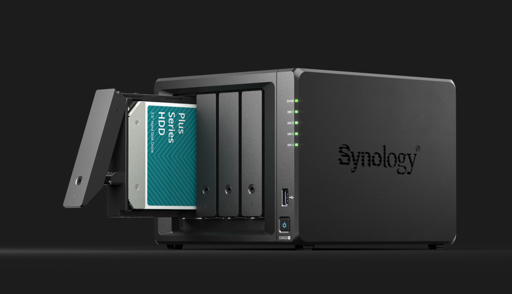Synology’s telegraphed moves toward a contained ecosystem and seemingly vertical integration are certain to rankle some of its biggest fans, who likely enjoy doing their own system building, shopping, and assembly for the perfect amount of storage. “Pro-sumers,” homelab enthusiasts, and those with just a lot of stuff to store at home, or in a small business, previously had a good reason to buy one Synology device every so many years, then stick into them whatever drives they happened to have or acquired at their desired prices. Synology’s stated needs for efficient support of drive arrays may be more defensible at the enterprise level, but as it gets closer to the home level, it suggests a different kind of optimization.



Is the main appeal of prebuilt NAS cases the aesthetics and the reduction of DIY concerns?
Because they seem to me like overpriced and underpowered computers. Most tech-oriented folks I know have more powerful PCs in a closet somewhere that they could easily convert into a NAS
Edit: some very thoughtful responses thanks y’all! I definitely see the appeal for people who just need something that doesn’t need tinkering or care significantly about power draw and noise.
Reliability. We’ve put them in small businesses and they do their job very well VS a frankenpc NAS.
I have 2 8-Bay devices at home and they are so good for what they are. Silent, low power, bit of fancy utility for those that like it but reliable and quality. They age very well.
I also use the surveillance station with my cameras which all connected ootb fine. (mix of brands)
I think the biggest draw to Synology now is the ultra low power consumption. Yeah, you could totally repurpose an old PC, but it’s crazy to run 500W perpetually. The reason they use old Celeron processors is the low power draw. In time, hopefully, RISC V can produce some low cost systems that would slot in well for this use case.
Obviously everything depends on use case. I definitely am a tinkerer and prefer options. I’d never run a jellyfin server off a synology NAS cause… Well cause it can’t transcode very well. So efficiency is less of a concern than processing power.
I get now that my questions was a bit moot, obviously some people will pay a premium for a narrow use case if it brings reliability and ease of use.
You are paying for reasonably well polished software, which for non technical people makes them a very good choice.
They have one click module installs for a lot of the things that self hosted people would want to run. If you want Plex, a onedrive clone, photo sync on your phone, etc just click a button and they handle installing and most of the maintenance of running that software for you. Obviously these are available on other open source NAS appliances now too so this isn’t much of a differnentiator for them anymore, but they were one of the first to do this.
I use them for their NVR which there are open source alternatives for but they aren’t nearly as polished, user friendly, or feature rich.
Their backup solution is also reasonably good for some home labs and small business use cases. If you have a VMware lab at home for instance it can connect to your vCenter and it do incremental backups of your VMs. There is an agent for Windows machines as well so you can keep laptops/desktops backed up.
For businesses there are backup options for Office365/Google Workspace where it can keep backups of your email/calendar/onedrive/SharePoint/etc. So there are a lot of capabilities there that aren’t really well covered with open source tools right now.
I run my own built NAS for mass storage because anything over two drives is way too expensive from Synology and I specifically wanted ZFS, but the two drive units were priced low enough to buy just for the software. If you want a set and forget NAS they were a pretty good solution.
If their drives are reasonably priced maybe they will still be an okay choice for some people, but we all know the point of this is for them to make more money so that is unlikely. There are alternatives like Qnap, but unless you specifically need one of their software components either build it yourself or grab one of the open source NAS distros.
I see! Thanks so much for the thoughtful response definitely seems like there’s a use case for people who might be more creatives with a need for storage rather than self-hosting enthusiasts who want to mess around in a homelab.
The prices are still a bit eye watering but you pay for software support for sure.